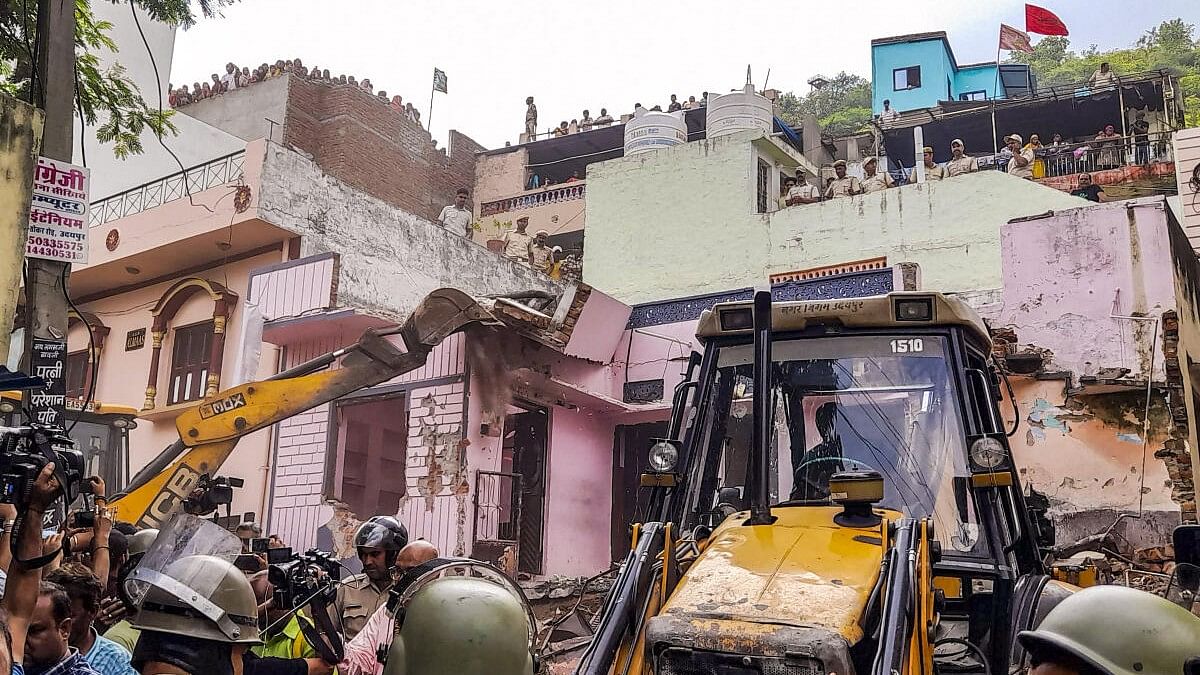
House of an accused student, who allegedly stabbed his classmate at a government school, being bulldozed, in Udaipur, Saturday, Aug. 17, 2024.
Credit: PTI Photo
New Delhi: The Supreme Court on Monday decided to lay down pan-India guidelines to deal with the controversial issue of "Bulldozer justice" resorted to by some state governments, wherein they demolish the house of a person immediately after they are accused of a crime.
The top court said a pious father may have a recalcitrant son or vice versa, and both should not be made to suffer consequences of each other's actions.
"Property of an accused or a suspect or even a convict can't be demolished. We will issue pan India guidelines. Apparently, there is a breach of rules," a bench of B R Gavai and K Vishwanathan said.
Even as Solicitor General Tushar Mehta submitted that the state governments acted only in case of violations of municipal laws, the bench, however, said looking at the complaints, there is an apparently breach.
The court asked all the sides to come up suggestions and fixed the matter for consideration on September 17. The issue was raised in a petition filed by Jamiat Ulama I Hind.
The court underscored that immovable properties can be razed only by the following the procedure.
The plea raised grievances that the properties of persons accused of some crimes have been demolished in Uttar Pradesh, Madhya Pradesh, Rajasthan and other states.
The Solicitor General submitted that no immovable property can be demolished just because the accused is involved in a criminal offence. He maintained that demolition is only possible if the structure is illegal, like construction on pavements.
Mehta said action is only taken if there is a violation of municipal laws.
The bench asked why directions cannot be passed to avoid such demolitions.
Mehta also suggested that a notice can be issued first and time can be given to answer it. He added time can also be given to seek legal remedies.
The court also made it clear that it is not defending illegal structures and proposed to lay down guidelines for demolition across the country to resolve the issue.
